NIL
Field Of 64 Predictions, How To Watch
Postseason college baseball is here and the road to Omaha is getting clearer as the NCAA Baseball Tournament bracket will be released Monday morning at 9 a.m. PT. The Oregon Ducks (42-14) have already been picked as one of the 16 teams to host an NCAA Regional Tournament starting this Friday at PK Park. Oregon’s […]
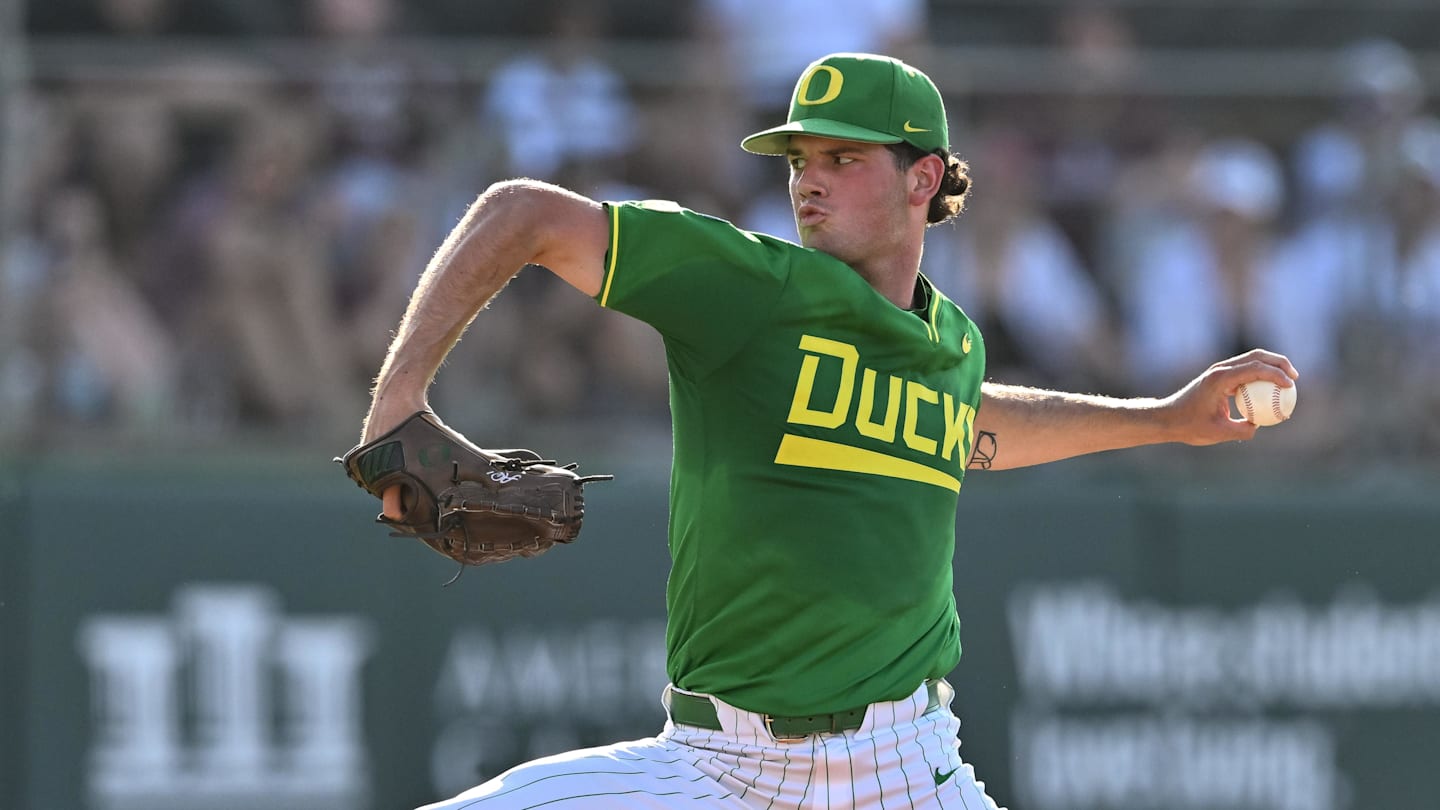
Postseason college baseball is here and the road to Omaha is getting clearer as the NCAA Baseball Tournament bracket will be released Monday morning at 9 a.m. PT.
The Oregon Ducks (42-14) have already been picked as one of the 16 teams to host an NCAA Regional Tournament starting this Friday at PK Park.
The NCAA selection show will reveal the Ducks’ seeding and what three other teams will make up the Eugene Regional.
One of the biggest questions that will be answered Monday morning is, will the Ducks be in a position to host in the Super Regional round, should they advance? In the NCAA Baseball tournament, the top eight national seeds host Super Regionals. The Super Regionals are a best-of-three series where the two teams from each of the 16 regional winners compete to advance to the College World Series in Omaha, Nebraska.
The tournament bracket will be announced during the selection show at 9 a.m. PT on Monday, May 26 on ESPN2 or ESPNU.
D1Baseball revealed new projections after play on Sunday. Unfortunately, the projections had Oregon as the No. 13 national seed, meaning Oregon would not host the Super Regionals. The opponents for the Eugene regional in PK Park were predicted to be the Arizona Wildcats, Connecticut Huskies and North Dakota State.
Mark your calendars! Here is the 2025 NCAA DI baseball tournament schedule:
Selection show: Monday, May 26 at 9 a.m. PT on ESPN2 or ESPNU
Regionals: Friday-Monday, May 30-June 2
Super Regionals: Friday-Monday, June 6-9
First day of MCWS games: Starts Friday, June 13
MCWS finals: Saturday – Sunday/Monday, June 21-22/23
MORE: New York Liberty’s Sabrina Ionescu Out Duels Caitlin Clark, Makes Franchise History
MORE: Washington Commanders’ Josh Conerly Jr. Changing Positions? Laremy Tunsil Trade Impact
MORE: Longest College Football Home Winning Streaks: Georgia, Washington, Oregon Ducks
The Ducks etched themselves in the history books by earning the chance to host the NCAA Regional. The Ducks have now hosted a regional for five consecutive years that Oregon has qualified for the NCAA Tournament, with all five coming during the Mark Wasikowski era.
Since the return of baseball in 2009, the Ducks have been selected to participate in the NCAA Tournament 10 times, with the current five-year streak marking the most consecutive NCAA Tournament appearances in program history.
Oregon will be hosting an NCAA Regional for the fourth time in the last 14 years. The Ducks previously hosted regionals in 2012, 2013 and 2021. Oregon has also hosted a pair of Super Regionals (2012, 2023).
In the Big Ten Tournament, top-seeded Oregon had its 11-game winning streak snapped in the final game of pool play, losing to the Nebraska Cornhuskers 7-3 on Saturday morning. Nebraska was the No. 8 seed in the conference tournament, and the Cornhuskers advanced to face the Ducks after a walk-off win in extra innings over the Michigan State Spartans.
Originally scheduled for Friday night, the game between Oregon and Nebraska was postponed due to inclement weather.
Ultimately, Nebraska went on to win the 2025 Big Ten Baseball Tournament. The Cornhuskers defeated the UCLA Bruins in the championship game, 5-0. Nebraska has now won its second consecutive Big Ten Tournament title.
After the early loss in the Big Ten Tournament, Wasikowski took much of the blame.
“Well obviously I didn’t do a good enough job of getting them reset and ready to go for today,” Coach Wasikowski said May 24. “One team showed up and they were ready to play and one team showed up and didn’t look as ready to play as the other team and that was us. That’s on me.”
Here is D1Baseball’s projected field of 64 on May 25
NIL
New college sports agency rejecting some NIL deals
The new agency in charge of regulating name, image, likeness deals in college sports sent a letter to schools Thursday saying it had rejected deals between players and donor-backed collectives formed over the past several years to funnel money to athletes or their schools. What You Need To Know A new college sports agency has […]
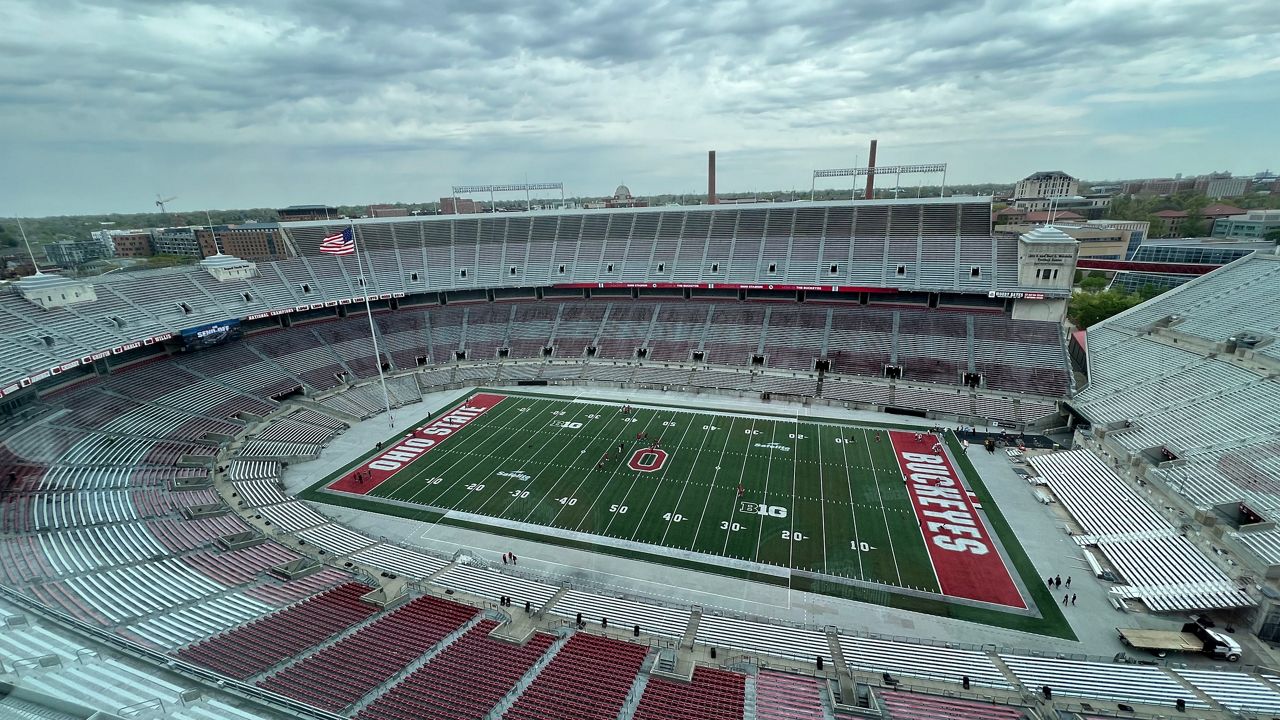
The new agency in charge of regulating name, image, likeness deals in college sports sent a letter to schools Thursday saying it had rejected deals between players and donor-backed collectives formed over the past several years to funnel money to athletes or their schools.
Those arrangements hold no “valid business purpose,” the memo said, and don’t adhere to rules that call for outside NIL deals to be between players and companies that provide goods or services to the general public for profit.
The letter to Division I athletic directors could be the next step in shuttering today’s version of the collective, groups that are closely affiliated with schools and that, in the early days of NIL after July 2021, proved the most efficient way for schools to indirectly cut deals with players.
Since then, the landscape has changed yet again with the $2.8 billion House settlement that allows schools to pay the players directly as of July 1.
Already, collectives affiliated with Colorado, Alabama, Notre Dame, Georgia and others have announced they’re shutting down. Georgia, Ohio State and Illinois are among those that have announced plans with Learfield, a media and technology company with decades of licensing and other experience across college athletics, to help arrange NIL deals.
Outside deals between athlete and sponsor are still permitted, but any worth $600 or more have to be vetted by a clearinghouse called NIL Go that was established by the new College Sports Commission.
In its letter to the ADs, the CSC said more than 1,500 deals have been cleared since NIL Go launched on June 11, “ranging in value from three figures to seven figures.” More than 12,000 athletes and 1,100 institutional users have registered to use the system.
But the bulk of the letter explained that many deals could not be cleared because they did not conform to an NCAA rule that sets a “valid business purpose” standard for deals to be approved.
The letter explained that if a collective reaches a deal with an athlete to appear on behalf of the collective, which charges an admission fee, the standard is not met because the purpose of the event is to raise money to pay athletes, not to provide goods or services available to the general public for profit.
The same would apply to a deal an athlete makes to sell merchandise to raise money to pay that player because the purpose of “selling merchandise is to raise money to pay that student-athlete and potentially other student-athletes at a particular school or schools, which is not a valid business purpose” according to the NCAA rule.
A deal, however, could be approved if, for instance, the businesses paying the players had a broader purpose than simply acting as a collective. The letter uses a golf course or apparel company as examples.
“In other words, NIL collectives may act as marketing agencies that match student-athletes with businesses that have a valid business purpose and seek to use the student’s NIL to promote their businesses,” the letter said.
NIL
Former College Football Backup Details ‘Shocking’ NIL Earnings
iStockphoto Audio By Carbonatix NIL has completely changed the landscape of college sports. Football players, in particular, are reaping the benefits of a wide-open market that has few constraints. One former Florida Atlantic football player showed just how lucrative the payment system can be for those that play their cards right. Josh Moore made more […]

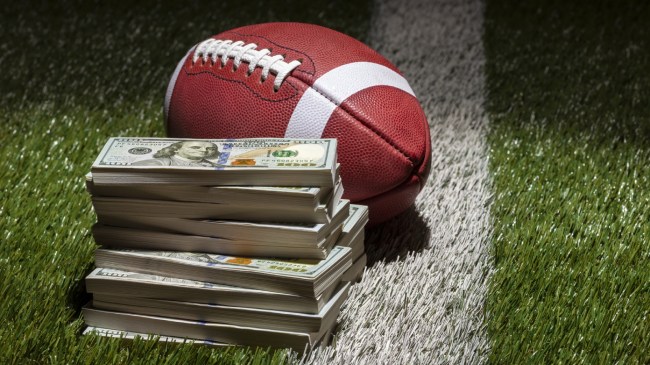
iStockphoto

Audio By Carbonatix
NIL has completely changed the landscape of college sports. Football players, in particular, are reaping the benefits of a wide-open market that has few constraints.
One former Florida Atlantic football player showed just how lucrative the payment system can be for those that play their cards right. Josh Moore made more than you’d expect given his status on a Group of 5 roster.
Moore was a reserve player that began his career at UCLA. After one season, he transferred closer to home to suit up for the Owls in Boca Raton.
While he was a contributor both on defense and special teams, he was never in the starring role. Moore often found himself No. 2 or 3 on the depth chart. It didn’t prevent him from financial success.
Off the field, Josh Moore is a content machine. He was named the 2024 Athlete Creator of the Year. He boasts more than 300k followers on TikTok and another 376k on Instagram.
He makes a living (literally) off of his football videos through major brand deals. He’s also been using his online fame to educate the future.
Moore has a TikTok series called “Football and Finance” where he breaks down notable NIL happenings in the world of college sports. He also details his own past experiences as a player and content creator.
How much do college football players make in NIL?
Moore provided his personal income from 2024 while at FAU. Keep in mind that this is a player that logged just 11 career tackles as a reserve. The numbers might shock you!
A breakdown:
January: $1,584.06
February: $4,119
March: $3,256.45
April: $3,256
May: $5,430.97
June: $4,470.94
July: $4,986.92
Here’s where things go crazy. Moore hired an agent ahead of August. He saw an immediate impact on his bottom line.
August: $15,421.35
September: $6,480
October: $18,260.48
November: $13,426.66
December: $28,497.41
Total yearly earnings – $107,990.04. Not bad for a backup! And it’s all a credit to Josh Moore.
He notes that these payments were not simply given to him through a football team collective. He earned them through partnerships with major companies, including Nike, DoorDash, and Meta.
Moore created his own personal brand and popularity through social media. He then leveraged his fame into brand deals with some of sports’ biggest names. The former college football player showed the power of NIL when done right.
NIL
Penn State Below Top Programs in Average NIL Recruit Spending
Money talks, especially in college football. Everything changed when NIL came into existence a few years ago and altered the landscape of college sports forever. Gone are the days of amateurism as brand deals and universities paying players have taken over. Culture, fit, team success, preparedness for the NFL, and other factors still significantly matter, […]
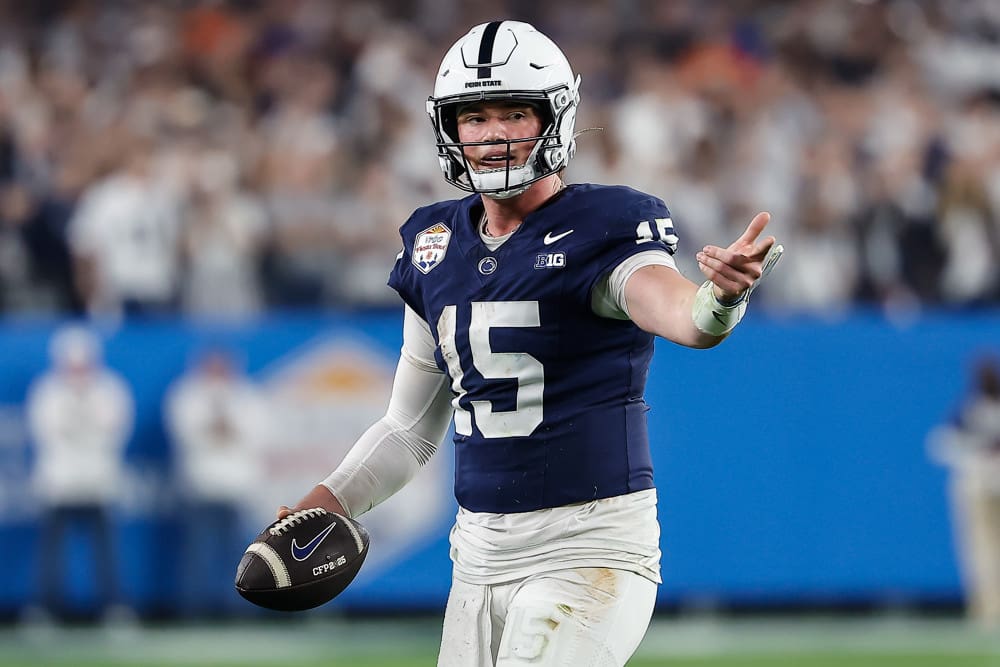
Money talks, especially in college football.
Everything changed when NIL came into existence a few years ago and altered the landscape of college sports forever.
Gone are the days of amateurism as brand deals and universities paying players have taken over.
Culture, fit, team success, preparedness for the NFL, and other factors still significantly matter, but many players could choose to go where the money takes them.
If that’s the case, it won’t always take them to Penn State. On3 updated its 2025 recruiting rankings earlier this month and identified NIL averages for players at each school.
According to On3, Penn State is paying its players an average of $87,000. For the recruiting class of 2026, the number is even lower.
The site sources Penn State with a $59,000 average payout for players. That’s lower than Texas Tech ($81k), Washington ($72k), Ole Miss ($72k), South Carolina ($72k), and BYU ($69k).
Penn State is frequently in the final groupings for recruits who hold offers from Oregon ($232k), Georgia ($189k), Ohio State ($150k), Notre Dame ($104k), and Michigan ($91k), who all significantly outspend the Nittany Lions.
James Franklin has consistently said Penn State is built through high school recruiting, culture, and player retention. He isn’t in the market to build a program around transfers and fully turnover his roster due to NIL.
“I want this experience to be so much more than a transactional experience,” Franklin said after losing to Notre Dame in the College Football Playoff semifinals. “I want it to be transformational.”
It’s natural some players will leave for other opportunities, whether it’s playing-time related or a personal decision.
Nowadays, we’ve seen more transactional moves. Penn State has made a few.
It’s no secret PSU has improved through the portal. PSU revamped the wide receiver room with Kyron Hudson (USC), Devonte Ross (Troy), and Trevor Peña (Syracuse) thanks to the portal.
Linebacker Amare Campbell (North Carolina) and returning safety King Mack (Alabama) help bolster Jim Knowles’ defense.
Penn State ranks No. 13 with an On3 recruiting score of 90.912 this year, below Oregon (4), Ohio State (5), Michigan (6), and Notre Dame (12).
The program slots No. 15 in 2026 (89.698) and is behind the same cluster of competitors.
Players’ retention is a critical factor in Penn State being regarded as a leading national championship threat.
Quarterback Drew Allar, running backs Nick Singleton and Kaytron Allen, defensive tackle Zane Durant, edge Dani Dennis-Sutton, linebackers Dom DeLuca and Tony Rojas (portal), cornerback A.J. Harris (portal), safety Zakee Wheatley, and four starting offensive linemen could have either entered the transfer portal or the NFL draft.
Penn State hosts Nevada on August 30 to begin the much-anticipated season in Happy Valley.
NIL
Joey McGuire praises Patrick Mahomes’ impact at Texas Tech: ‘He is all freaking in’
Amid his rise to stardom in the NFL, Patrick Mahomes made sure he didn’t forget his alma mater. His presence is still strong around Texas Tech as he supports not only the football program, but the athletics department as a whole. Mahomes – a two-time MVP and three-time Super Bowl champion – made a $5 […]

Amid his rise to stardom in the NFL, Patrick Mahomes made sure he didn’t forget his alma mater. His presence is still strong around Texas Tech as he supports not only the football program, but the athletics department as a whole.
Mahomes – a two-time MVP and three-time Super Bowl champion – made a $5 million donation to Texas Tech and partnered with multiple Red Raiders athletes through NIL deals with adidas and Team Mahomes. When the softball program made it to the Women’s College World Series, Mahomes gifted the Red Raiders custom gear.
All the while, Mahomes built a strong relationship with Joey McGuire. The Texas Tech head coach remains impressed with Mahomes’ support for the school and said he sometimes gets called out of the bullpen to help make recruiting pitches.
“He’s pretty incredible. … I think he probably sleeps in a Double-T every night,” McGuire said on The Triple Option. “Like, he is just all freaking in on Texas Tech. And he’ll tell you, man, he literally says, I am who I am because I came to Lubbock and I’m a Red Raider. It’s great to have him. Our walk through room is the Patrick Mahomes walk-through room. Our quarterbacks’ meeting room is the Patrick Mahomes quarterbacks meeting room, our offensive coordinator has Patrick Mahomes’ name on it in his office.
“The dude’s real. I’m wearing Mahomes shoes … for football school. And what’s cool, he’s one of the greatest, just humble dudes. Like, he’s just a real guy.”
McGuire also shared a story that shows just closely Mahomes follows Texas Tech and keeps a strong presence around the football program. His foundation’s golf tournament took place in Las Vegas the day of the NFL’s schedule release, and McGuire saw an opportunity to think through when Mahomes could attend games.
By the time the two found each other, Mahomes had already thought through when he’d be on the sidelines. He circled one game in particular – Texas Tech vs. BYU, which is Andy Reid’s alma mater. Mahomes told McGuire he’s bringing his head coach along.
“I played in his foundation tournament in Vegas – that was not a hard sell, to go out to Vegas and play golf,” McGuire said. “But we took some Red Raiders out there, and he had a meet-and-greet the before the dinner, and it was the day that the NFL schedule was released. So I was looking when his bye week was and what it matched up with. So I got it. As soon as he walks into the building, he makes a beeline to me and says, ‘I’ll be at the BYU game, man. I’m going to be there. I’ve already been talking so much trash to Coach Reid. In fact, I’m gonna make him come with me, so you’d better win that game.’ Like, think about that. He’s thought about it and already knows before I do. That’s who he is, man.
“I mean, he was at the softball Game 2 and Game 3. He gave all that gear to the our softball team. I will text him and say, ‘Hey, man, I’m gonna have so-and-so on campus,’ let’s say he’s a quarterback, 2026. ‘Tell me a time that I can get on the phone with you and you can just say hello.’ He was on our sideline during his bye week – we played at Kansas and he was on our sideline.”
NIL
Congress to propose NIL guidelines in new college sports compensation bill
A bill designed to end ambiguity surrounding name, image and likeness (NIL), establish professional guidelines for agents and protect collegiate leagues from antitrust lawsuits received a strong endorsement from a bipartisan group of nine congressional representatives Thursday. The Student Compensation and Opportunity through Rights and Endorsements (SCORE) Act, which was introduced in the Energy and […]

A bill designed to end ambiguity surrounding name, image and likeness (NIL), establish professional guidelines for agents and protect collegiate leagues from antitrust lawsuits received a strong endorsement from a bipartisan group of nine congressional representatives Thursday.
The Student Compensation and Opportunity through Rights and Endorsements (SCORE) Act, which was introduced in the Energy and Commerce subcommittee, prevents athletes from obtaining employee status. But in many ways, the act is the first step in establishing a bill of rights for athletes.
It officially ends any administrative restrictions to athletes’ NIL compensation within limits, but it allows schools and conferences to establish what is — and isn’t — permissible. Should the federal legislation pass, it would override current state NIL laws, which vary from border to border.
“College athletics are a vital part of American culture, and it’s clear — from both student-athletes and universities — that a national framework is long overdue,” Florida Republican Gus Bilirakis, who chairs the House Committee on Energy and Commerce, said in a statement. “(The SCORE Act) delivers the stability, clarity and transparency that stakeholders have been calling for.”
The bill guarantees each school can share up to 22 percent of the average annual college sports revenue from the 70 highest-earning institutions with athletes, which was established last month in the House settlement. For athletes, schools are required to provide legal advice pertaining to NIL plus support for financial literacy, taxes, academics, substance abuse and sexual violence prevention.
In addition, the bill requires schools to furnish medical care, including all out-of-pocket expenses for injuries incurred for at least three years following graduation or program separation. Schools are also required to guarantee financial aid to athletes wishing to return to school to obtain a degree after leaving the institution before graduation.
“Student-athletes have consistently asked for meaningful reform — and this legislation is a step toward delivering on that request,” NCAA senior vice president of external affairs Tim Buckley said in a statement. “The NCAA has made long-overdue changes, mandating health and wellness benefits and ushering in a new system for Division I programs to provide up to 50 percent of athletic department revenue to student-athletes, but some of the most important changes can only come from Congress.
“This bill reflects many student-athletes’ priorities, and the NCAA is committed to working with Congress to build a bipartisan path forward that ensures the long-term success of college sports and the ongoing opportunities they provide to young people.”
The multilayered, 30-page bill defines an agent “as a non-family member who represents athletics for NIL or other financial agreements.” Any agent not registered “may only assist” athletes with endorsements and must receive written consent for such assistance. The bill calls for a 5 percent cap on agent compensation.
With compliance, conferences are exempt from antitrust lawsuits. The bill allows for the conferences to establish and enforce rules that require athletes to disclose NIL contracts. In turn, it empowers conferences through the College Sports Commission to require athletes to disclose third-party NIL deals worth more than $600. The CSC, which is known as NIL Go, could also reject those deals.
“As the mom of a DI athlete, I’ve seen firsthand how important — and how long overdue — it was to allow our student-athletes to earn their fair share,” Congresswoman Janelle Bynum (D-OR) said in a statement. “The NIL marketplace in college sports is currently operating like the Wild Wild West. This legislation takes important steps towards adding guardrails that guarantee that all student-athletes can earn fair compensation, access a complete and quality education, and develop the skills they need to succeed in life after sports.
If ratified and signed, the bill would go into effect on July 1, 2026.
(Photo of the U.S. Capitol: Drew Angerer/ Getty Images)
NIL
New college sports agency rejecting some NIL deals
The new agency in charge of regulating name, image, likeness deals in college sports sent a letter to schools Thursday saying it had rejected deals between players and donor-backed collectives formed over the past several years to funnel money to athletes or their schools. What You Need To Know A new college sports agency has […]
The new agency in charge of regulating name, image, likeness deals in college sports sent a letter to schools Thursday saying it had rejected deals between players and donor-backed collectives formed over the past several years to funnel money to athletes or their schools.
Those arrangements hold no “valid business purpose,” the memo said, and don’t adhere to rules that call for outside NIL deals to be between players and companies that provide goods or services to the general public for profit.
The letter to Division I athletic directors could be the next step in shuttering today’s version of the collective, groups that are closely affiliated with schools and that, in the early days of NIL after July 2021, proved the most efficient way for schools to indirectly cut deals with players.
Since then, the landscape has changed yet again with the $2.8 billion House settlement that allows schools to pay the players directly as of July 1.
Already, collectives affiliated with Colorado, Alabama, Notre Dame, Georgia and others have announced they’re shutting down. Georgia, Ohio State and Illinois are among those that have announced plans with Learfield, a media and technology company with decades of licensing and other experience across college athletics, to help arrange NIL deals.
Outside deals between athlete and sponsor are still permitted, but any worth $600 or more have to be vetted by a clearinghouse called NIL Go that was established by the new College Sports Commission.
In its letter to the ADs, the CSC said more than 1,500 deals have been cleared since NIL Go launched on June 11, “ranging in value from three figures to seven figures.” More than 12,000 athletes and 1,100 institutional users have registered to use the system.
But the bulk of the letter explained that many deals could not be cleared because they did not conform to an NCAA rule that sets a “valid business purpose” standard for deals to be approved.
The letter explained that if a collective reaches a deal with an athlete to appear on behalf of the collective, which charges an admission fee, the standard is not met because the purpose of the event is to raise money to pay athletes, not to provide goods or services available to the general public for profit.
The same would apply to a deal an athlete makes to sell merchandise to raise money to pay that player because the purpose of “selling merchandise is to raise money to pay that student-athlete and potentially other student-athletes at a particular school or schools, which is not a valid business purpose” according to the NCAA rule.
A deal, however, could be approved if, for instance, the businesses paying the players had a broader purpose than simply acting as a collective. The letter uses a golf course or apparel company as examples.
“In other words, NIL collectives may act as marketing agencies that match student-athletes with businesses that have a valid business purpose and seek to use the student’s NIL to promote their businesses,” the letter said.
-

 Technology2 weeks ago
Technology2 weeks agoPet fitness and wellness trends for a healthier and happier dog
-

 College Sports2 weeks ago
College Sports2 weeks agoWAC to Rebrand to UAC, Add Five New Members in 2026
-

 Motorsports1 week ago
Motorsports1 week agoWhy Cosmetics are Making Up for Lost Time in Women’s Sports
-
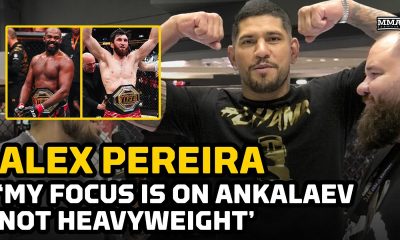
 Professional Sports3 weeks ago
Professional Sports3 weeks agoAlex Pereira responds to rumors of UFC heavyweight title fight with threatening message
-

 College Sports3 weeks ago
College Sports3 weeks agoAlabama Basketball
-

 Professional Sports3 weeks ago
Professional Sports3 weeks agoFrancis Ngannou sends Dana White a message following Jon Jones' shock UFC retirement
-

 College Sports2 weeks ago
College Sports2 weeks agoA new era of Dickinson hockey begins behind the bench – The Dickinson Press
-

 Motorsports2 weeks ago
Motorsports2 weeks agoNASCAR This Week – Patriot Publishing LLC
-
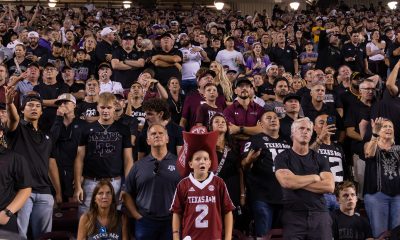
 Sports3 weeks ago
Sports3 weeks agoSEC Conference imposing a fine will create the opposite effect.
-

 Health2 weeks ago
Health2 weeks agoFlorida assault survivor shares hope for change with new mental health law

















 ‘KEEP IT CALM!’ | First Take
‘KEEP IT CALM!’ | First Take













